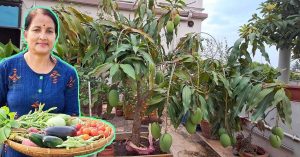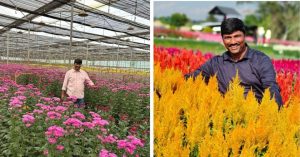‘With Farming, I Broke Shackles of an Abusive Marriage & Became the Breadwinner of My Family’
Despite facing domestic violence and hardship, Rukmani Devi, a hearing and speech-impaired woman from Jharkhand, embraced farming on her unused land, becoming the sole breadwinner for her family. Here’s how she did it.
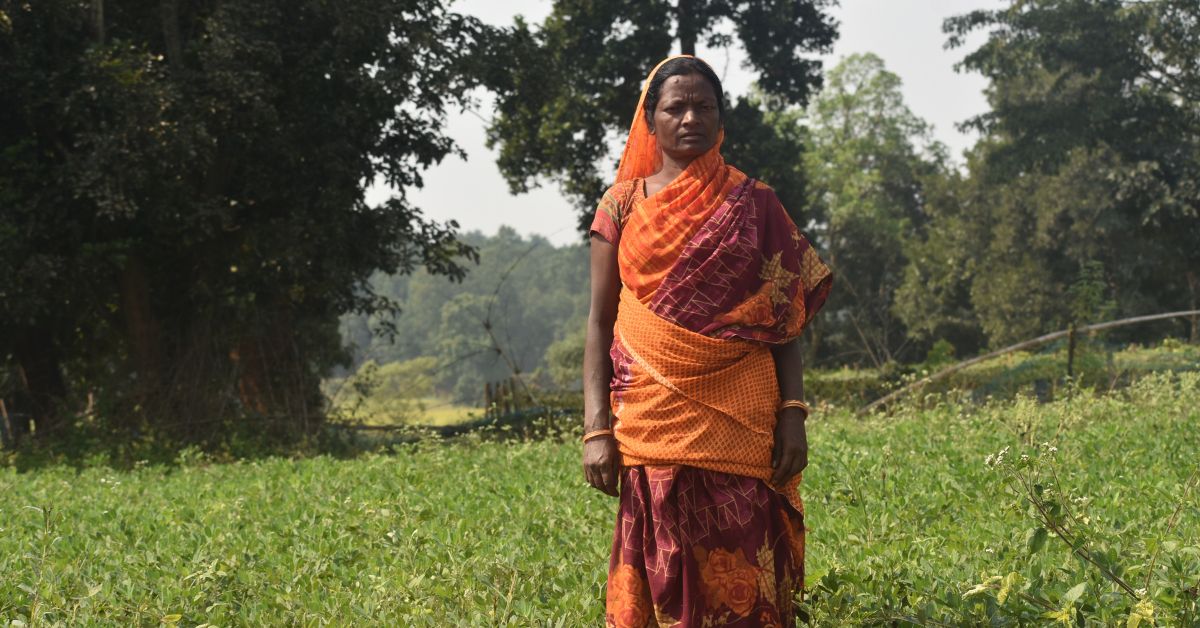
This interview was conducted with the help of Rukmani Devi’s son and neighbour as the protagonist has hearing and speech impairment.
Trigger warning: Mentions of domestic violence
In 2022, PRADAN — the non-profit that works to empower rural communities — organised a workshop to help women transform their lives with agriculture.
Seeing all rural women flock to the village chaupal to attend the agricultural entrepreneurship meeting, Jharkhand’s Rukmani Devi could not resist. Unable to understand the ongoing meeting, she watched the lead converse with enthusiastic women, but from a distance.
Later, with the help of sign language, Rukmani’s neighbour explained to her how the organisation talked about boosting household income by cultivating multiple crops in the region, which has been grappling with water scarcity.
Impressed with the idea, Rukmani was thrilled to farm on her unused farmland.
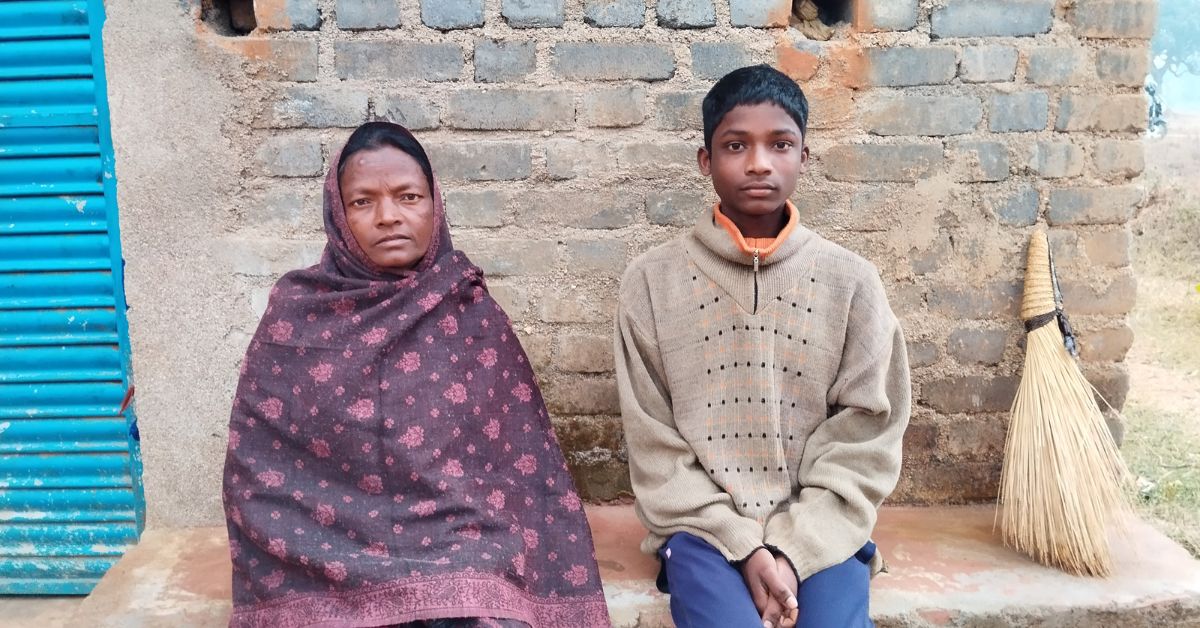
Before this, the 49-year-old would toil day and night ploughing, weeding other’s land, and harvesting their crops. Today, she has become a proud cultivator and the sole breadwinner of her family.
From an abusive father to an alcoholic husband
Born to an impoverished family of daily wagers in the Gumla district, Rukmani was raised along with eight siblings. Like her sister, she could not hear or speak since her birth.
“This is also a reason why our father disliked us. Often, he would make us work more, unlike our other able-bodied siblings. If we didn’t work as per his wish, he would beat us,” she conveys in sign language.
Other than being taunted for her disability, Rukmani had a harsh childhood. She never went to school and spent her entire day doing household chores.
“My father would crush stones and rocks for a living. It was irregular work, so he would often be home sitting idle. Somedays, we would eat rice with madua (millet), pluck tamarind from the forest or earn a jackfruit by working for an entire day at someone’s farm. It was not easier to arrange even a one-time meal,” she adds.
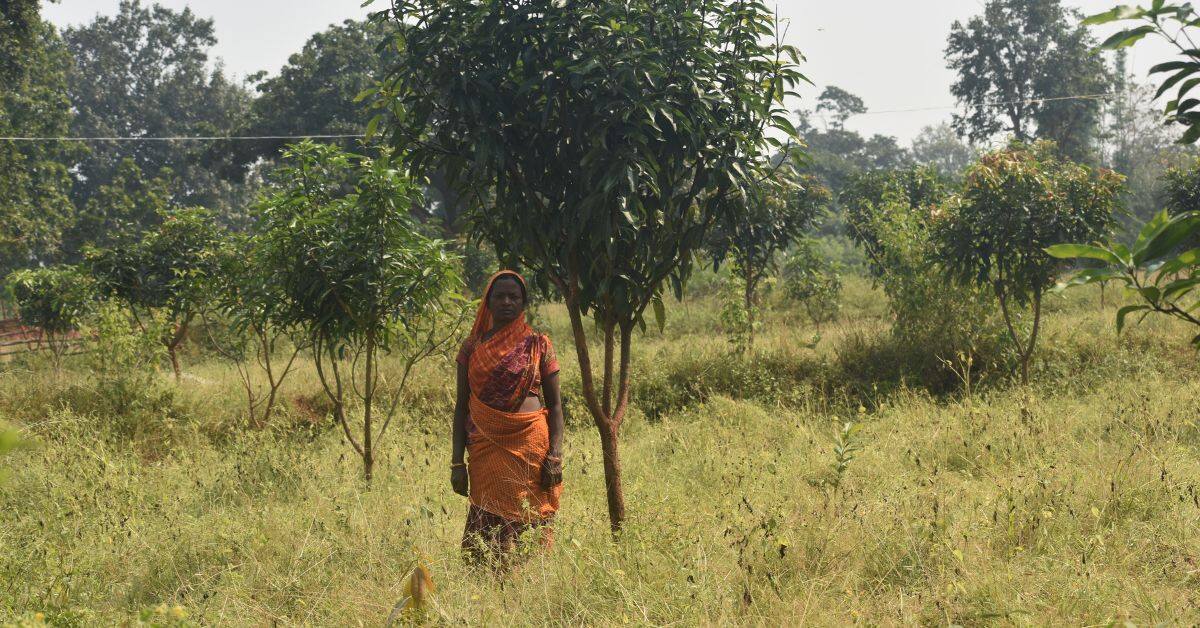
Besides, being born with a disability also meant difficulty finding a suitable match. Over the years, she became a ‘burden’ to her family. When she turned 20, her father got her married off to a man who was 20 years older than her.
“I was married to a person who was twice my age who was already married. This marriage did not bring me any happiness. My husband was an alcoholic and would come drunk daily. He would hit me and then throw me out of his home. I would spend most of my days in neighbours’ homes,” she conveys.
Without any work, Rukmani’s husband would exhaust her daily wages and sell household utensils if denied money. He stepped over the line when he leased the family’s old mahua tree – their only prized possession.
Her husband’s alcohol addiction took a toll on his health. In 2014, he died after contracting tuberculosis, leaving behind three daughters and a son to look after. “My situation started getting better post his death,” she conveys.
Rukmani then raised her four children with a monthly widow pension of Rs 1,000. Despite owning a two-acre land, she would toil in others’ fields. “I would work all day to get one jackfruit. As a mother, my only concern was to feed my children and pray for their better future, away from miseries,” she says in sign language.
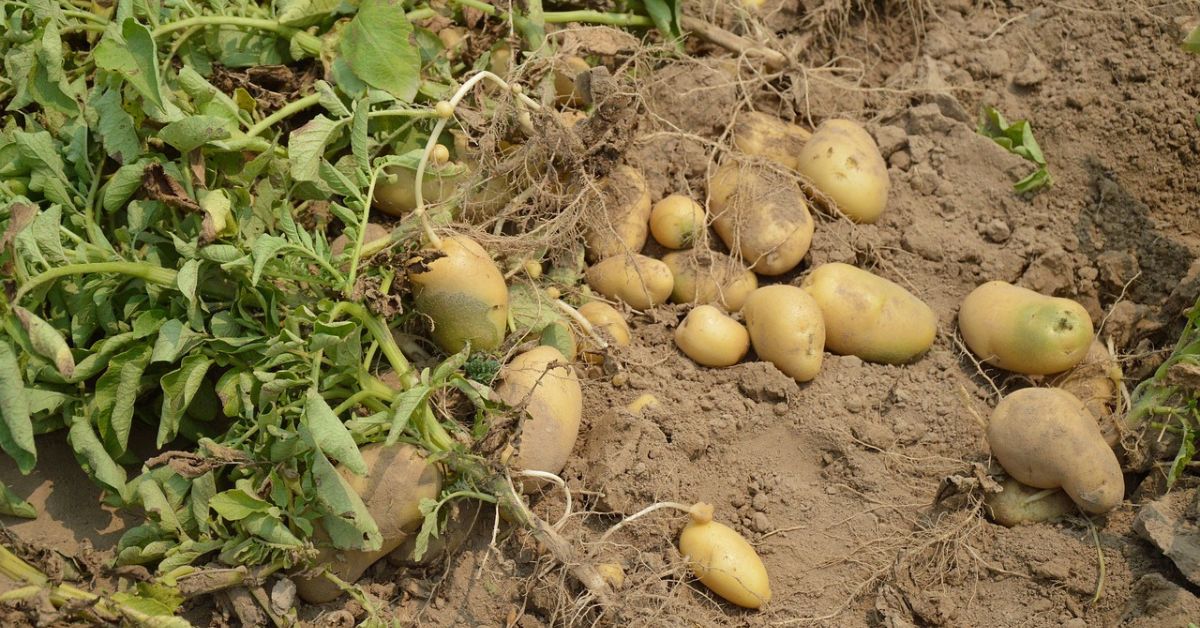
Embodying resilience and determination
After learning to farm from PRADAN’s team, Rukmani decided to cultivate peas and potatoes. For this, she procured seeds from women cooperatives at subsidised prices and sowed in 30 decimals of her land [1 acre equals 100 decimals].
In 2022, she also sought help from PRADAN to irrigate her fields.
“We had introduced a lift irrigation project in water-scarce gram panchayats of Jharkhand. As part of this project, we laid pipes in fields and connected them with the nearest river to supply adequate water for irrigation using solar energy,” Satyam Sharma, who works as an executive with PRADAN tells The Better India.
With the non-profit’s assistance and regular monitoring, Rukmani was able to harvest at least four jute sacks of peas and potatoes, earning an income of Rs 4,000. “That year, we did not have to buy potatoes as we kept them for our own consumption and sold the rest of the produce of peas,” she conveys.
The family used the income to renovate their small mud kitchen and shed for livestock.
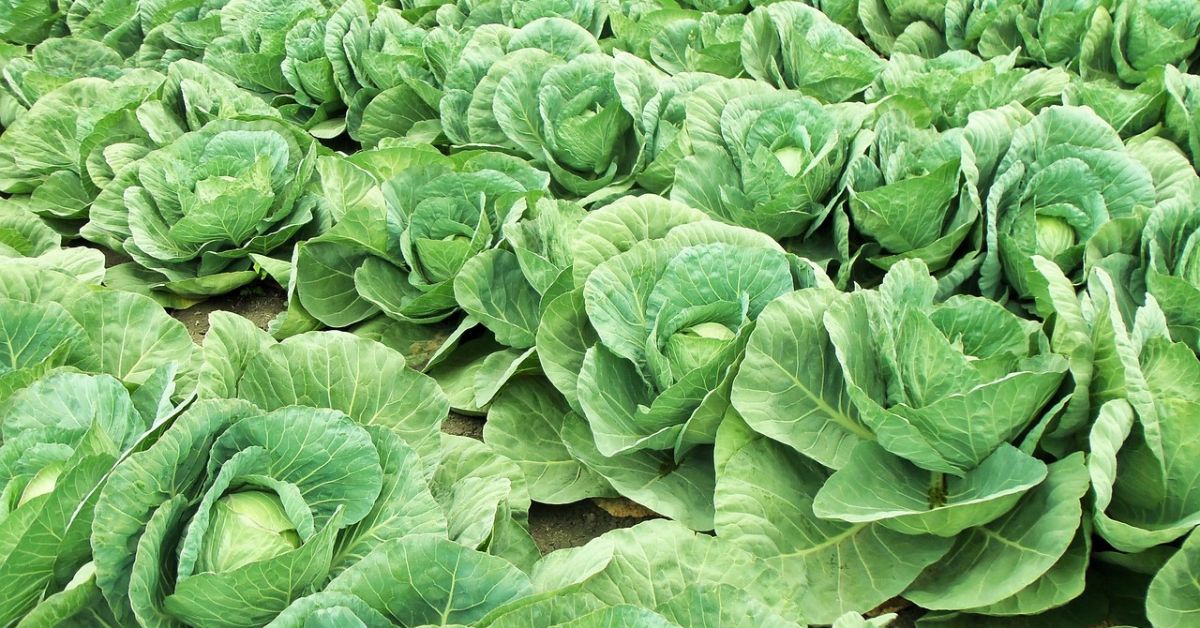
Roughly 1.5 years since then, Rukmani has expanded cultivation on two acres of land, cultivating crops like peas, chana, beans, potatoes, cabbage, cauliflower, and mustard, earning a seasonal profit of at least Rs 15,000.
“Earlier, we only had enough means to manage only one or two square meals. Today, we have a shelter, a home that we call our own, and our own clothes that are not worn out. I do not have to go to others’ field and homes to get food for my kids. I grow them on my own, in my own field. This is a luxury for a poor family like ours,” conveys Rukmani.
Defying all odds, Rukmani has today reached her highest potential and left behind an extraordinary example for other village women to follow. If you found our stories insightful, informative, or even just enjoyable, we invite you to consider making a voluntary payment to support the work we do at The Better India. Your contribution helps us continue producing quality content that educates, inspires, and drives positive change. Choose one of the payment options below for your contribution- By paying for the stories you value, you directly contribute to sustaining our efforts focused on making a difference in the world. Together, let’s ensure that impactful stories continue to be told and shared, enriching lives and communities alike. Thank you for your support. Here are some frequently asked questions you might find helpful to know why you are contributing?

Her neighbour Savita Devi tells The Better India, “Rukmani didi can’t speak or hear. Often, I explain things to her with gestures. I have seen her struggle over the years. Despite the hardships of living with an alcoholic husband and with a disability, didi has progressed and never looked back. She is an inspiration to able-bodied people like me,” she remarks.
Edited by Pranita Bhat.
This story made me
-
97
-
121
-
89
-
167




